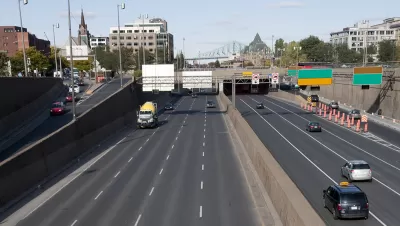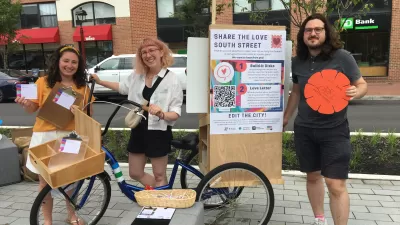If public transit suffers long-term consequences from the coronavirus, as many experts predict, telecommuting could be a key tool in reducing pollution and congestion, but it creates problems of its own and its effects aren't entirely clear.

A post by the Transportation Research Board gathers recent and historic studies on the effects of telecommuting for indications about how the post-COVID world might change if the shift toward working from home stick around for months, years, or indefinitely into the future. But telecommuting creates problems of its own, and research conducted to date, admittedly conducted in conditions short of the kind of wholesale changes inspired by the pandemic, hasn't shown telecommuting to be the kind of slam dunk many might hope it to be.
For instance, research from the 1990s made the case for telecommuting as "an ideal way to mitigate traffic congestion and improve air quality." But another study, completed 20 years later, "showed that regular teleworkers used time and money saved to either take trips they couldn’t during a normal work commute or move farther from the offices they were visiting less frequently."
Then there are the funding problems created when transportation revenues are tied to gas taxes. "Before much of the white-collar workforce began teleworking in mid-to-late March, the Congressional Budget Office had already estimated the Mass Transit Account of the Highway Trust Fund would be exhausted in 2021 and the Highway Account by 2022. States have been thinking outside the pump in terms of how their transportation revenue can be maintained."
FULL STORY: Telework transportation research in light of the COVID-19 pandemic

Trump Administration Could Effectively End Housing Voucher Program
Federal officials are eyeing major cuts to the Section 8 program that helps millions of low-income households pay rent.

Planetizen Federal Action Tracker
A weekly monitor of how Trump’s orders and actions are impacting planners and planning in America.

Ken Jennings Launches Transit Web Series
The Jeopardy champ wants you to ride public transit.

Philadelphia Is Expanding its Network of Roundabouts
Roundabouts are widely shown to decrease traffic speed, reduce congestion, and improve efficiency.

Why Bike Lanes Are Good: An Explainer for the US Transportation Secretary
Sean Duffy says there’s no evidence that bike lanes have benefits. Streetsblog — and federal agencies’ own data — beg to differ.

California Invests Additional $5M in Electric School Buses
The state wants to electrify all of its school bus fleets by 2035.
Urban Design for Planners 1: Software Tools
This six-course series explores essential urban design concepts using open source software and equips planners with the tools they need to participate fully in the urban design process.
Planning for Universal Design
Learn the tools for implementing Universal Design in planning regulations.
Ada County Highway District
Clanton & Associates, Inc.
Jessamine County Fiscal Court
Institute for Housing and Urban Development Studies (IHS)
City of Grandview
Harvard GSD Executive Education
Toledo-Lucas County Plan Commissions
Salt Lake City
NYU Wagner Graduate School of Public Service





























